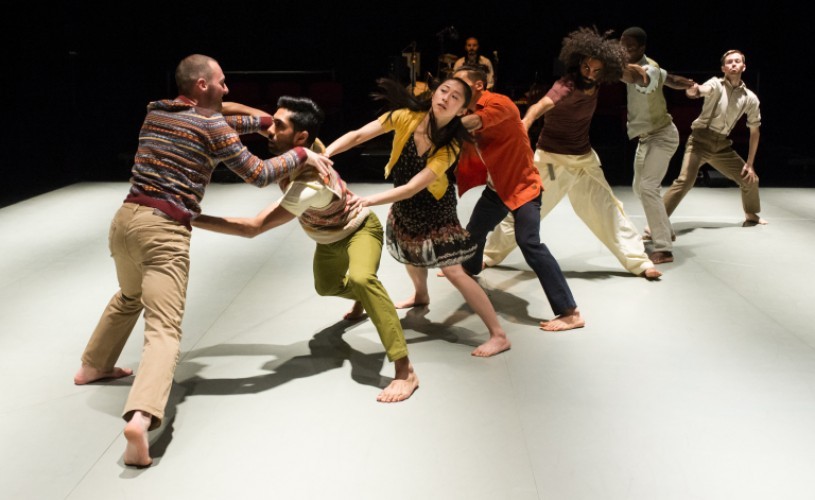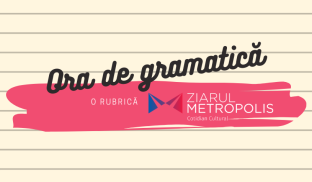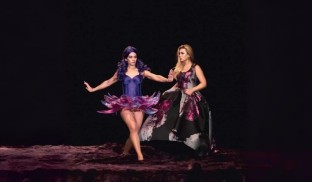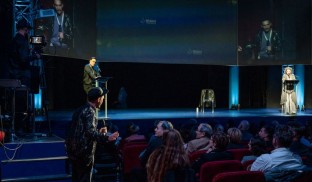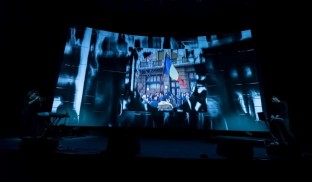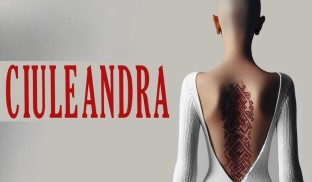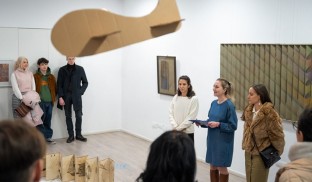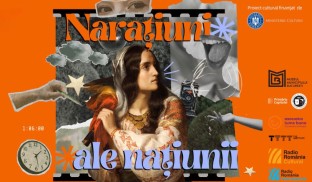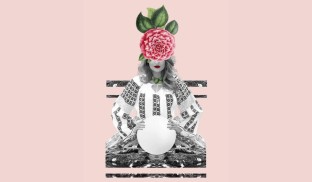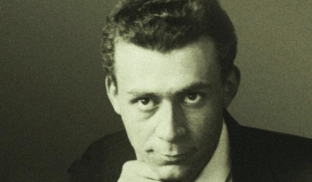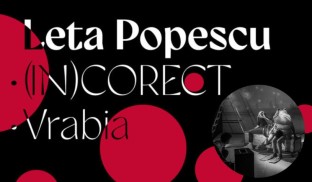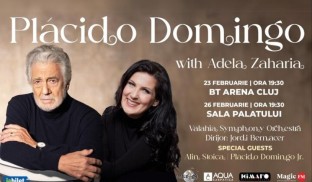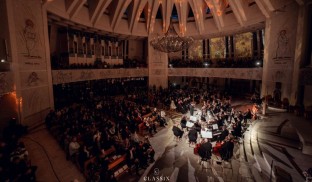At this year’s Sibiu International Theater Festival, the London based theater dance company Luca Silvestrini’s Protein presented Border Tales, arguably the most interesting, fun and also food-for-thought-generating performances of this 25th Festival edition.
Un articol de Cristina Enescu Aky|19 iulie 2018
A project that tackles a difficult topic of contemporary society: our daily life in an increasingly multicultural world, in which migration brings together people from all over the world, forcing them to somehow coexist. It’s a complicated, unpredictable context, in which we all have fears and prejudices, and this creates a lot of challenges. We can at least start to overcome these, though, through humour and emotion, through the specific tools of performing arts. Border Tales was born in and around the multicultural context of Britain, but it actually speaks about every corner of the world where there are „natives” and „immigrants”.
The show was born within Modul-Dance, a collaboration project that included several dance companies from 16 European countries (2000-2014) and was meant to facilitate and disseminate the work of these companies in Europe. It includes 7 dance-actors, among which a musician, coming from different cultures both in reality and in the show’s narrative: Great Britain, Ireland, Nigeria, China, India, Pakistan. They all are trying to find their place in British societyasimmigrants, first generation Brits or natives in an increasingly multicultural nation. The show was born 5 years ago, but now, in post-Brexit times, it seems more relevant than ever before.
“One of the most clever comic choreographers” is how The Guardian described Italian choreographer Luca Silvestrini, and this show seems to support that characterisation. The comic of movement, dance and music are tools with which the characters (playing mostly the roles of their own lives) approach the quite tense topic of the interactions between “us” and “the others”, but in a serene and soothing way even during the most dramatic moments of the performance.
The prejudices we all have about strangers, somehow, sooner or later, the inner suffering of immigrants struggling to adapt to a new culture whilst also preserving their own cultural identity, the racism, the xenophobia, the sometimes hate-filled panic that people feel towards foreigners – all these have become frequent elements of daily life in many countries. Silvestrini and his actors approach these with gentle irony, democratically applied to all, imbued with tolerance and an open mind, thus showing that we all are actually much more similar than we are different, despite our different backgrounds.
A party where the British host tries to entertain the foreign guests, but (initially) only manages to show he is a slave to a range of hilarious stereotypes.
The envy the white man feels towards the innate rhythms of the black man.
Food traditions of the various people, and the life stories behind these.
An Arab with a backpack, spreading terror among his group of friends.
A Chinese woman, whose hand the others are afraid to shake, wrongly presuming this would be a forbidden gesture in her culture.
The Irish about which all others are convinced that he is a heavy drinker, to then only fall victim to the Catholicism specific feeling of guilt.
The whit European who thinks that any Asian must necessarily drink jasmine tea, any African must be an expert in tribal dance, and any Middle Eastern knows everything about camels.
The native, frightened by the possibility of a foreigner stealing his job.
Asian people, about which others believe steel and cook dogs, or have a repressed sexuality.
The Indian that all think he smells like curry.
The British native, struggling to live in an increasingly bigger diversity of people, whom he feels invaded by.
“How long are you going to stay in my country? Who do I belong with?”
“I think that you think about me that…”
“Is it about our past or about your future? What do you want from us, to learn your languages, to know your culture? Or is it about listening? About opening up? About becoming vulnerable, taking chances, trying out new things, getting out of your comfort zone?”
Instead of prejudice, blind fear, dispising or hating attitudes, Border Tales suggests a bit more lightheartedness when looking at “the other one”, a bit more curiosity, lots of tolerant humour and a whole lot of music, dance and various cuisines. It is a necessary, healing performace to watch by any soul who has ever having felt tense due to the interaction with another human being, a foreign, strange, unknown, potentially threatening one.
It’s a show that smilingly winks at many of the tense topics of our multicultural everyday life, and does this by using words, movements and different musical traditions to show that maybe there are no fixed or infallible solutions to these challenges, but there are certainly quite simple ways, serene ones, to start tackling them. “Or is it simpler than that? Is it about looking into sombody’s eyes and saying good morning? About knocking at your neighbour’s door and inviting them over for a good old cup of tea? Is it all a fruit salad? A melting pot? Or a fucking time bomb? Let’s have a drink and watch football.”
Watch ther trailer of Border Tales, a show by Luca Silvestrini’s Protein company
The interview with Luca Silvestrini at FITS 2018 can be read here.
Foto: Border Tales

